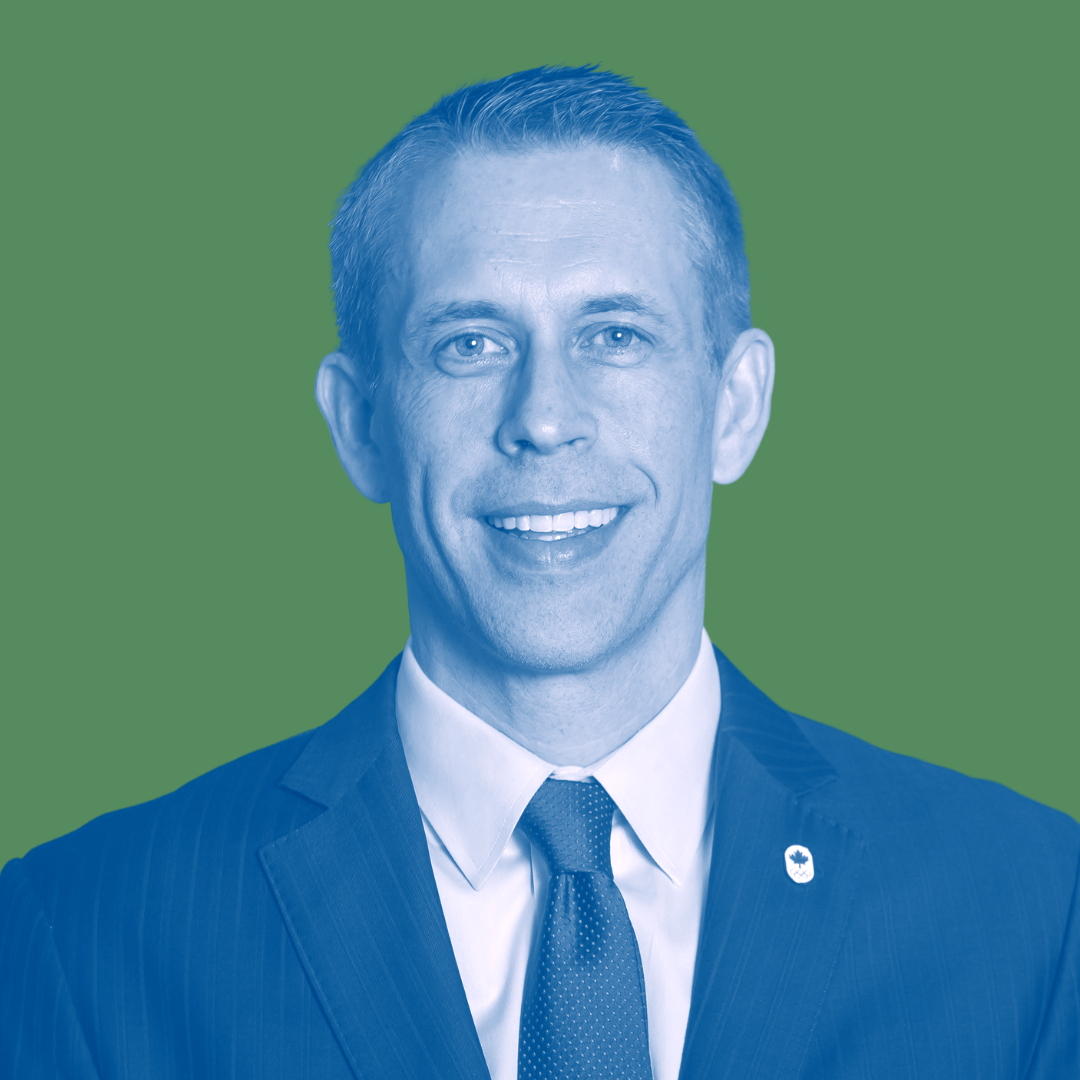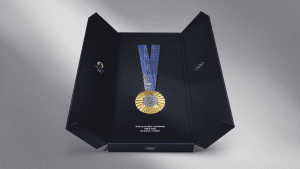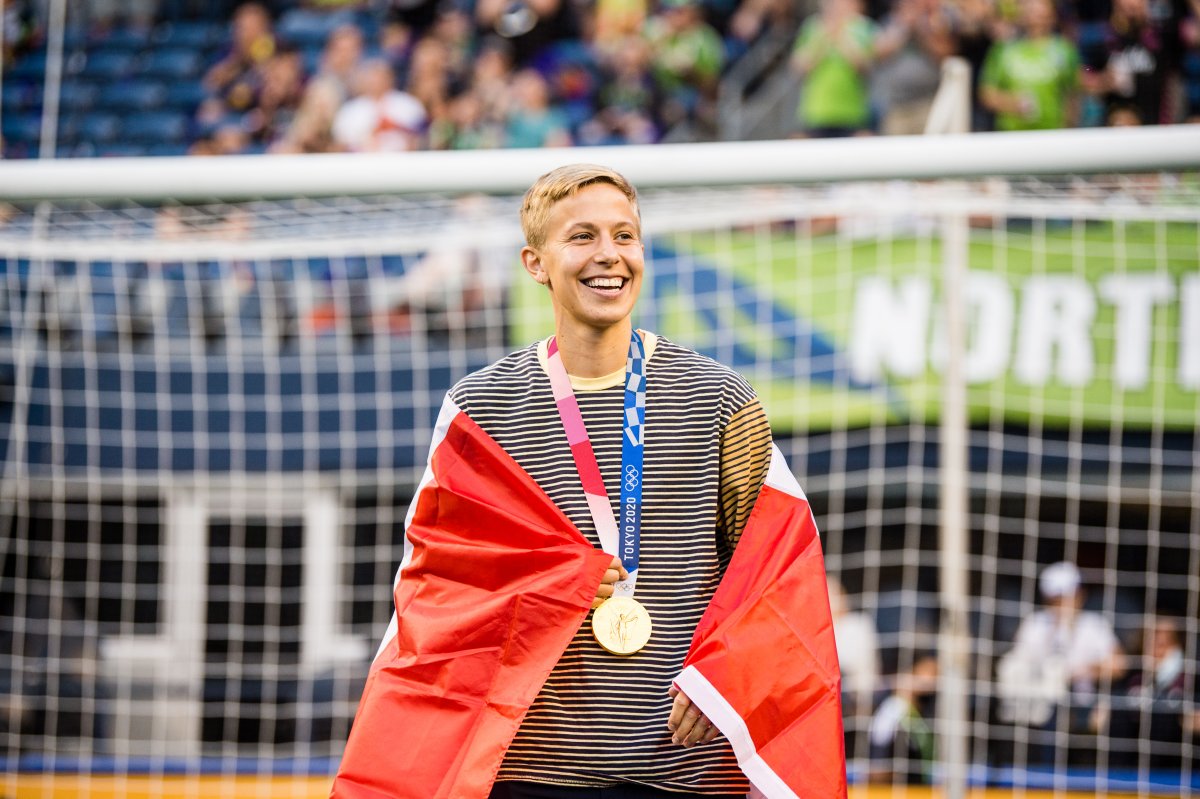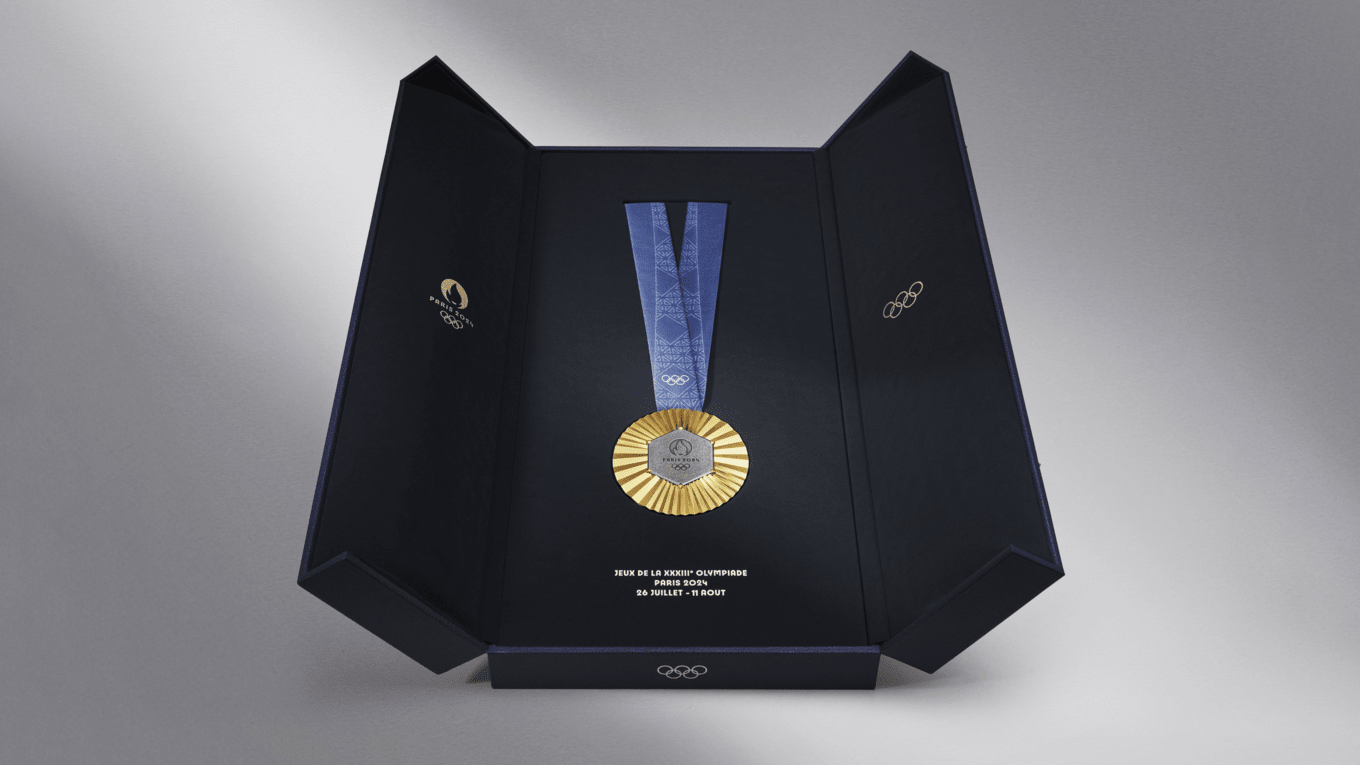The Drawing Board is a new series by Bay Street Bull that surveys industry leaders on topics of transformation, innovation, and the road ahead.
Live entertainment spans a multitude of industries, ranging from sporting events and tech conferences to fundraising galas and the performing arts. But what happens when you take the live experience out of the equation? How do we define these experiences when their most critical component is missing?
Without a doubt, the live entertainment and hospitality industries have been among the hardest hit as a result of COVID-19. But these are industries made of resilience and fortitude. If the pandemic has proven anything, it is our capacity to innovate, adapt, and act quickly.
David Shoemaker, CEO of the Canadian Olympic Committee, knows what it means to pivot and act quickly. In 2020, he was tasked with leading the organization’s efforts through the COVID-19 pandemic, which included overseeing the safety of its athletes and overhauling its plans around the postponed Tokyo Olympics. Here’s what he learned throughout the process.
Bay Street Bull: What is your role in the organization?
David Shoemaker: As the Chief Executive Officer and Secretary General of the Canadian Olympic Committee (COC), I oversee the broad scope of operations of the Olympic Movement in Canada including national sport development programs, Team Canada preparation, Olympic bids, and events, as well as the commercial and marketing arms of the organization.
Bay Street Bull: Are there any milestones that you are particularly proud of?
David Shoemaker: Since joining in January 2019, it’s been a tremendous honour to be a part of and lead the “team behind the team” here at the COC. It has been great to see the dedication of our leaders in the sports community, especially during these challenging times. I’ve been fortunate to be a part of several moments of impact for the COC.
A significant milestone for me was the Pan American Games, the first major Games I experienced as CEO. Our delegation of 476 athletes won a total of 152 medals—the most in a non-home Games since Mar del Plata 1995. We finished third in total medals won behind the USA and Brazil. To be able to witness first-hand the incredible performances of Team Canada was something I will never forget.
As an organization, we celebrated a pair of employee engagement milestones [in 2020] that we are really proud of as a team. After being certified a Great Place to Work in February, the COC was then officially ranked one of the Best Workplaces in Canada in April. While we had to toast the latter virtually due to COVID-19, it was a truly special moment for us as a staff.
Bay Street Bull: In which ways have opportunities been created from the COVID-19 pandemic as a result of quick-thinking and adaptation?
David Shoemaker: Postponement of the Olympic Games, something that nobody ever imagined possible, has led to quite a pivot in our space which started happening quite early on. While the official name remains Tokyo 2020, we witnessed a great example of creative innovation with how quickly the informal name and logo went from Tokyo 2020 to Tokyo 202One. Though postponement comes with certain challenges, that moment provided the opportunity to reset and chart a course towards the new date in 2021.
We’ve had to adapt as the circumstances in our country have changed. As provinces and cities began to open up more, we knew that the appetite to return to training was growing. We knew we needed to determine what the greatest areas of need were and invest in key priorities to ensure that a return to sport was done in a manner that protected the health and safety of athletes, their families, and their communities. The high-performance sport community quickly rallied around this need and the Return to Sport Task Force was born. They developed a National Framework of minimum standards based on current evidence, and guidelines from the provincial, territorial, and federal health authorities.
High-performance sport is a large and layered system, heightened by the varying degrees of policies and COVID environment that vary from province to province. Another challenging aspect is that we still don’t know where this goes and how it ends. Planning how we continue to support high-performance sport through this essentially means we’re diving in before the metaphorical pool is full. Given these complexities, a plan for a safe return to training and competition must be both innovative and flexible. We are fortunate to have quick-thinking and adaptable experts to help lead us through these unprecedented times.
RELATED: How Toronto Raptors Head Coach Nick Nurse is Leading the Next Generation of Champions
Bay Street Bull: Can you describe an instance of out-of-the-box thinking that demonstrated a savvy business pivot?
David Shoemaker: Before now, it was unimaginable that any country would ever publicly declare that they would not send a team to the Olympic Games. Athletes are always at the centre of our decision-making. At the beginning of March, our conversation centered around whether or not it would be safe in July 2020 to send a team to Tokyo. In our daily Senior Leadership team meetings, our Chief Medical Officer Dr. Mike Wilkinson advised us that the question really should be whether or not it was safe to ask Canadian athletes to train in Canada. That question really changed how we looked at the situation. With that pivot in thinking we realized that no, it was not safe for our athletes to train. To do so would be endangering not only their health and safety but the health and safety of their families and their communities.
A decision like that is not one we take lightly nor one we could make in isolation. In conjunction with the Canadian Paralympic Committee, we spent the weekend round-the-clock conference and video calls consulting with the Canadian National Sport Organizations, the COC Athletes’ Commission and our Board of Directors and were met with tremendous support. I remain incredibly proud of the leadership and resilience that our athletes, National Sport Organizations, partners, and the Canadian sport community.
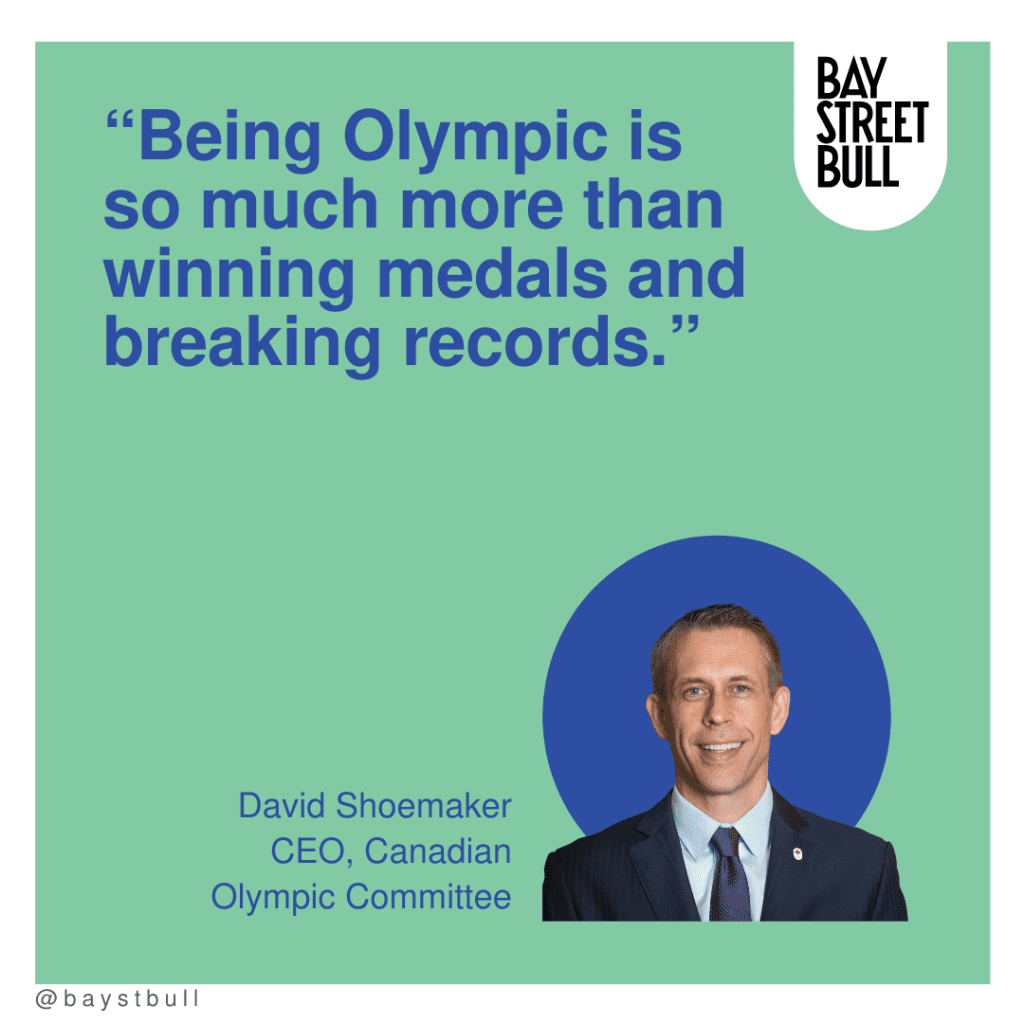

Bay Street Bull: In what ways has the reality of COVID-19 made your business better?
David Shoemaker: Preparations to send Team Canada to the Olympic Games start well in advance of the athletes touching down in the host city and COVID-19 has certainly thrown that plan for a loop. While the new dates have now been set for 2021, not knowing what the world looks like then presents a great obstacle for our business and community. On top of this, we have had to adjust our approach to Olympic planning with Beijing 2022 taking place six short months following the conclusion of Tokyo 2020.
Our new reality has provided us with the opportunity to be strategic on where we focus our business and really narrow in on two core priorities—delivery of the Olympic Games and COVID-19 response and recovery—the latter being quite new to us. The Canadian amateur sport system and high-performance athletes have always been key to our organization and it has been important that we adapt our work to ensure we are providing them as much support whenever and wherever possible.
Bay Street Bull: Are there any positive changes that you believe will remain once we are out of the woods with the pandemic?
David Shoemaker: The pandemic has made everyone more alert to infectious diseases and allowed us the chance to re-assess our approach to health and safety in training environments and at the Olympic Games. Institutions, training facilities, and venues are ramping up their protocols and health and safety measures. Historically, this has been more of a key responsibility for the Canadian Sport Institutes and Sport Centres, whose mandate is to provide world-leading training environments to elite athletes and coaches across Canada. However, as this has become a crucial focus in our current reality, the moving parts of the system have had to adapt rapidly. Our collaboration has been strengthened ten-fold and will continue to serve us well moving forward.
A pause in competition has shone a light on the role Canadian athletes play with making a social impact. We are incredibly proud of the leadership Canadian athletes have shown, especially during these challenging times. We saw Hayley Wickenheiser use her voice and popularity (and that of Ryan Reynolds) to help support frontline workers with her Conquer COVID-19 project and Personal Protective Equipment drive. Laurent Duvernay-Tardif went from winning the Super Bowl to opting out of the 2020 NFL season to continue serving on the front lines at a long-care term facility outside of Montreal. Pam Buisa, supported by fellow Team Canada rugby stars Josiah Morra and Charity Williams, organized the Peace Rally for Black Lives in Victoria. These are just some of many stories that highlight how being Olympic is so much more than winning medals and breaking records. While we’ve always been fortunate to have Team Canada athletes making tremendous impacts in their communities, the pandemic has shifted public perception of what athletes bring both on and off the field of play.
Bay Street Bull: How has the human connection been redefined for you?
David Shoemaker: Notionally, the pandemic has brought humans closer together through the power of a shared experience. You would be pressed to find one person who hasn’t been adversely affected by the pandemic. Practically, we’ve had to be purposeful in how we approach fostering human connection as the world changed and our homes became our offices.
Since the high-performance sport system in Canada is quite symbiotic and we’re all experiencing similar challenges in light of the postponement of the Olympic Games, we’ve had to navigate the pandemic as a collective. Shared problem-solving, frequent communication and collaboration, albeit virtually, have gone a long way in ensuring that human connection drives the work we’re doing together. Even though we now see each other through a screen, the passion and tenacity of our staff, athletes, partners, and sports community have never wavered. If anything, our team has flourished under our new circumstances. It’s been extraordinary to watch and humbling to be a part of.
RELATED: How Denny Morrison Overcame Adversity to Become a Speed Skating Legend
Bay Street Bull: What has surprised you about how your industry has been able to rally and grow?
David Shoemaker: While I wouldn’t say that I’m surprised, I’m both impressed and inspired by the unwavering support of all our partner family, but especially our Premier National Partners RBC, Bell, Canadian Tire and Hudson’s Bay. As our organization pivoted to COVID recovery and a safe return to sport, they were able to graciously help us with these priorities.
RBC invested $230K to support the Next Generation programming needs of each National Sport Organization involved in its nation-wide talent identification and athlete funding program, RBC Training Ground. Thanks to the continued support of Hudson’s Bay, 10 percent of the proceeds from the Tokyo 2020 Team Canada Collection will be put into our Return to Sport program. We were also able to mutually agree to fast-track a new partnership announcement with our inaugural Official Legal Services Partner, Fasken, to immediately address issues the sports community faces as a result of COVID-19.
Canadian Olympic Committee is incredibly lucky to have partners that believe in Team Canada and the Olympic Movement. Together, we will navigate the best path forward to Tokyo and to Beijing shortly after.
Bay Street Bull: Are there any silver linings? How have you redirected and focused your attention to other parts of your organization to make it better?
David Shoemaker: COVID-19 (and the resulting postponement of the Olympic Games) has provided us with more time—an extra year to perfect our work streams and Olympic preparation, the opportunity to take stock and evaluate our business and the ability to refocus on what is important to take our organization to new heights. This has allowed us to take a step back and conduct a self-audit of sorts to find new ways of doing things to set ourselves up for success in this new environment. The process has been incredibly beneficial for us, allowing us to refocus and set ourselves up for success in this new environment.
What we’re also seeing within our society is that this pause has shed more light on extremely important social justice issues, including the inequality and injustice that exists against Black and Indigenous communities. While racism is in no way something new, we’ve been able to take the time to re-evaluate and refocus the great work we’ve done in the Diversity and Inclusion space to better our organization.
Bay Street Bull: Any concluding remarks?
David Shoemaker: Athletes are resilient and always striving to be their best in any situation. Their pursuit of the podium pushes them even in the face of adversity. Those qualities can easily be applied to how an organization functions. While we could never have predicted this pandemic, we’ve had to adapt to everything that has come our way. We’ve had to evaluate how we approach the work that we do, where our priorities lie, and how we can reach even greater heights. We’re doing everything in our power to come out of this pandemic stronger and better than before.
[yikes-mailchimp form=”1″ title=”1″ submit=”SUBSCRIBE”]


